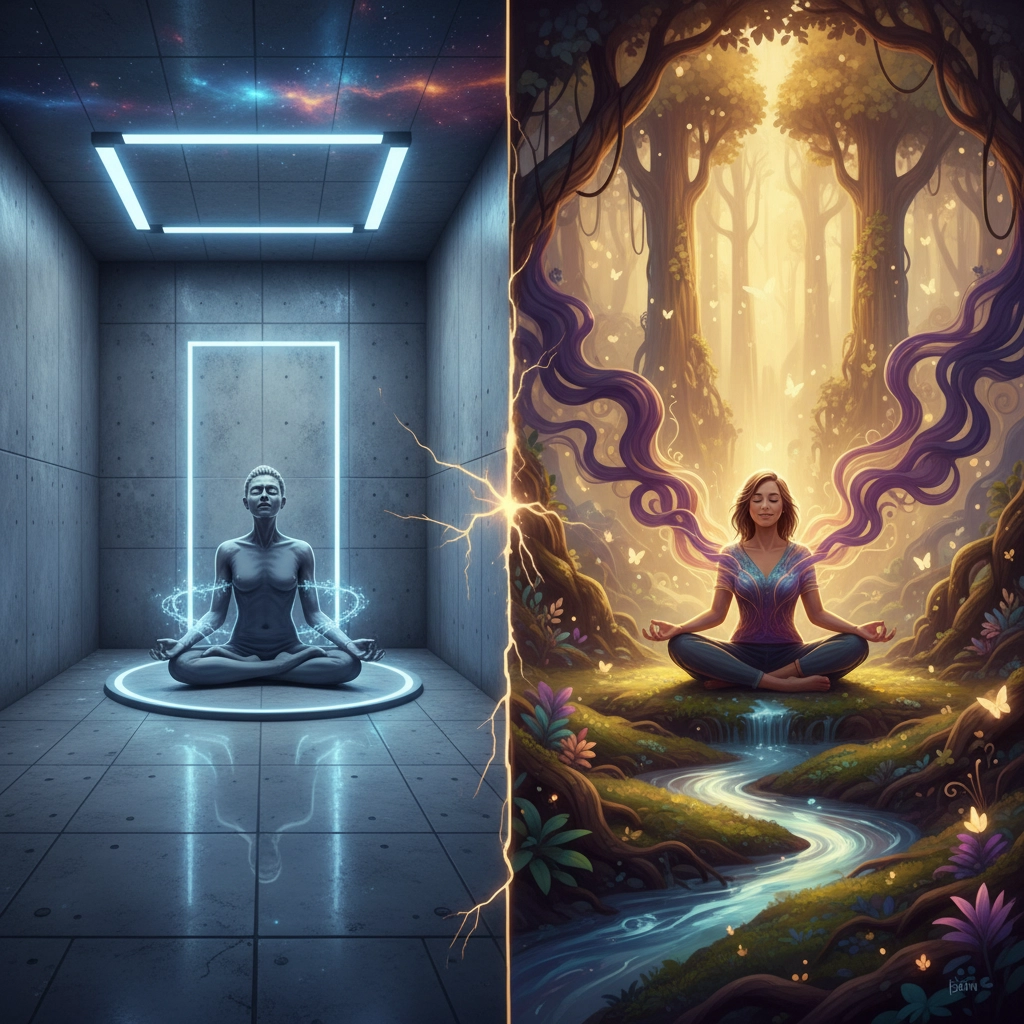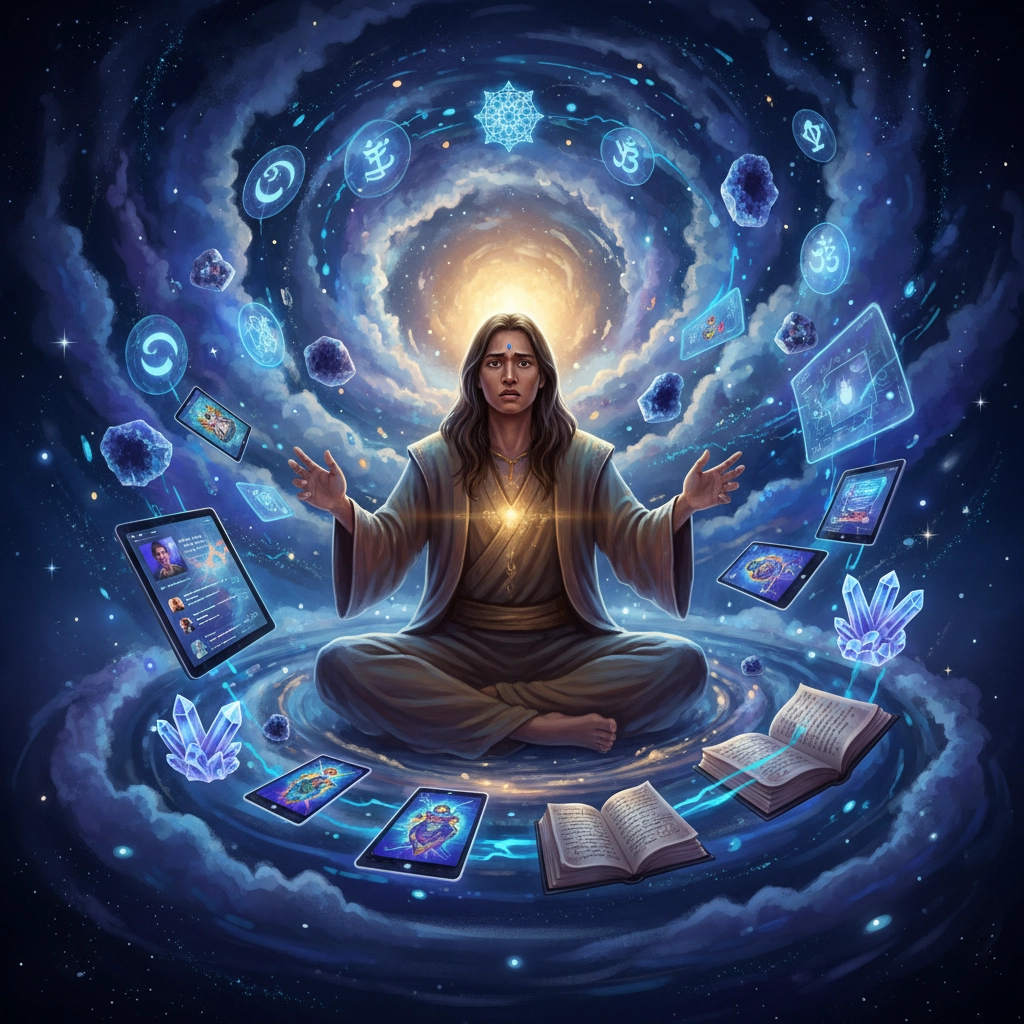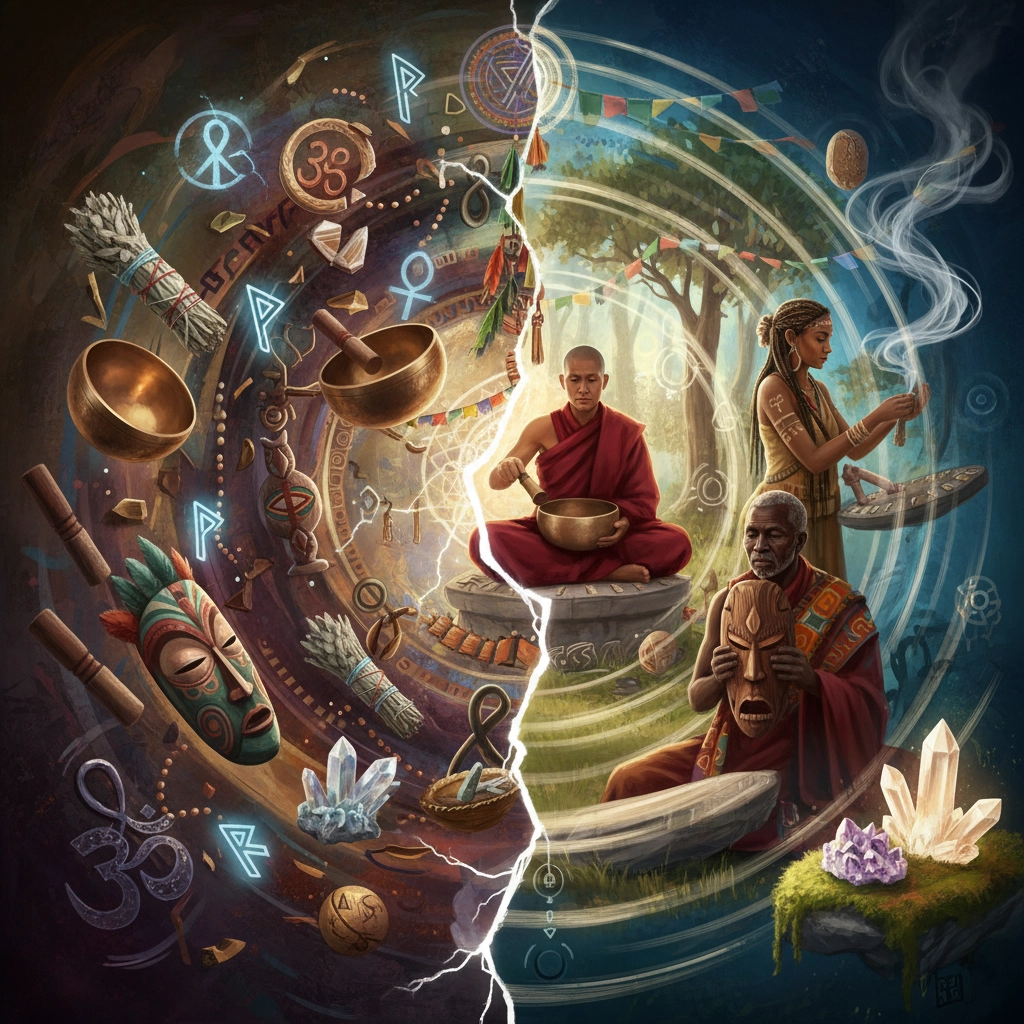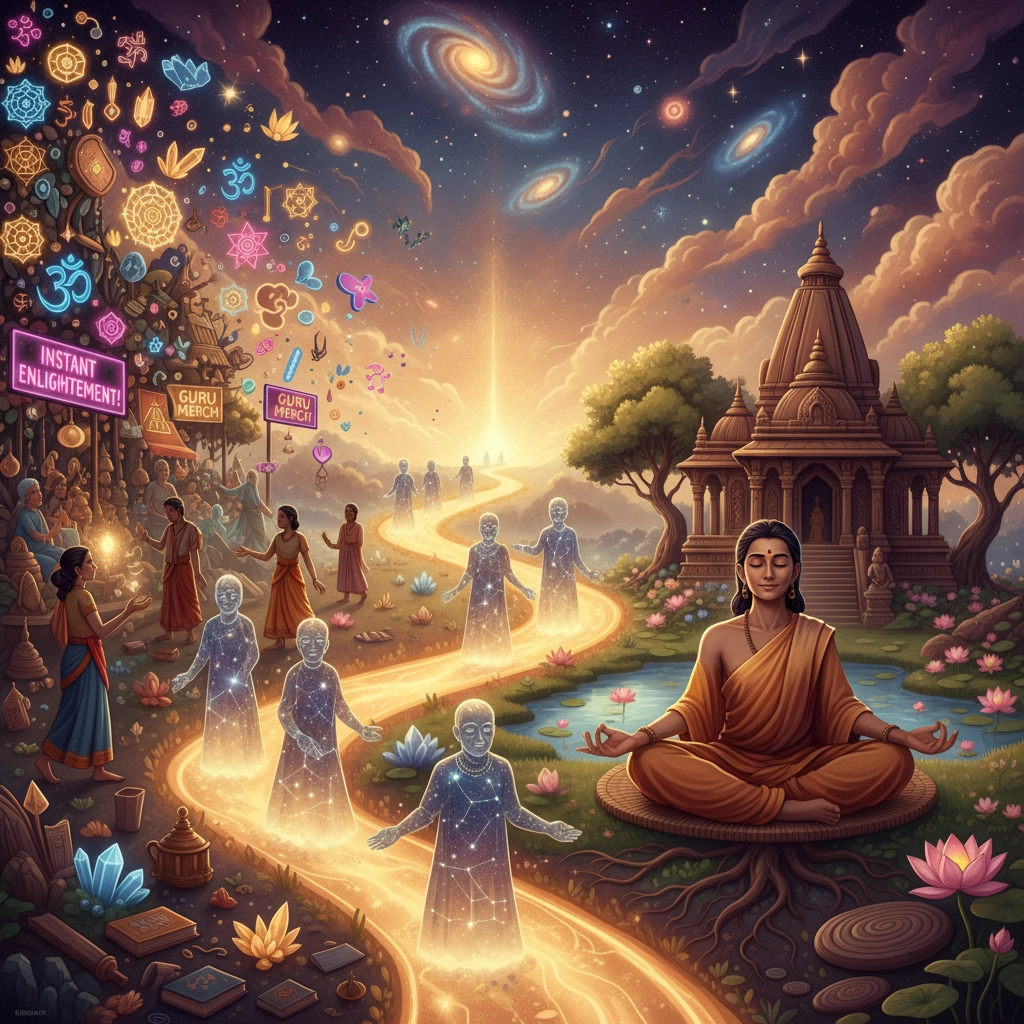I've been watching spiritual practitioners for decades now, and I keep seeing the same patterns. Bright-eyed seekers who start strong, then get stuck in the same three traps that have been catching people since humans first looked up at the stars and wondered about their place in the cosmos.
These aren't small mistakes. These are the kind of errors that can keep you spinning your wheels for years, thinking you're growing when you're actually creating new forms of spiritual bondage.
Let me be direct: if you're making any of these mistakes, you're not alone. But you are limiting yourself in ways that go deeper than you might realize.
Mistake #1: Trading One Prison for Another
The first mistake is the cruelest because it masquerades as freedom.
You break free from rigid religious structures: maybe the church that told you who you could love, or the temple that made spirituality feel like constant judgment. You discover meditation, energy work, maybe even find your way to ancestral practices. You breathe deep, thinking you've finally escaped the cage.
Then you build a new one.
Suddenly, you can't eat anything that isn't "high-vibe." You must meditate exactly 20 minutes every morning, or your entire day is spiritually ruined. You shame yourself for feeling anger because "enlightened people don't get angry." You create a rigid checklist of spiritual behaviors and beat yourself up when you fall short.

This is spiritual rigidity dressed up as awakening. You've just replaced one set of "shoulds" with another.
Real spiritual growth is an infinite exploration of self, energy, and soul. It breathes. It adapts. It meets you where you are, not where some spiritual rulebook says you should be.
I've seen practitioners torture themselves because they missed their morning ritual, convinced they'd "broken their energy" for the day. I've watched people reject perfectly healthy relationships because their partner wasn't "on their spiritual level." I've witnessed seekers create spiritual identities so rigid they couldn't laugh at a dirty joke without feeling guilty.
Your ancestors didn't practice spirituality as a performance. They practiced it as a living relationship with the sacred that could hold their full humanity: their joy, their grief, their complexity, their contradictions.
When your spiritual practice becomes another way to judge yourself, you've missed the point entirely.
Mistake #2: Outsourcing Your Inner Knowing
The second mistake is subtler but equally destructive: constantly looking outside yourself for answers that can only be found within.
This often starts innocently. You develop some intuitive abilities, maybe start noticing synchronicities, and suddenly you want the universe to guide every decision. You wait for the "right" number sequences before making choices. You go from teacher to teacher, looking for someone to tell you what your purpose is. You scroll through spiritual TikTok hoping someone else's revelation will unlock your path.
You become a spiritual tourist, sampling everything but mastering nothing.
I see practitioners who can quote every spiritual teacher on Instagram but can't sit quietly with their own breath for five minutes. They know all about chakras and manifestation techniques, but they haven't learned to trust the wisdom of their own heart.

The external seeking becomes an addiction. Every decision requires a sign, a reading, a confirmation from outside. You develop what I call "spiritual codependency": an inability to make choices without cosmic validation.
Here's what they don't tell you about real spiritual development: the most profound guidance comes from the simplest practice. Sit down. Close your eyes. Focus on your breath. Listen to what your heart already knows.
Your inner knowing doesn't need permission from angel numbers or validation from spiritual influencers. It's been waiting patiently for you to get quiet enough to hear it.
The ancestors didn't wait for perfectly aligned planets to make decisions. They developed their capacity to listen deeply, then trusted what they heard.
Mistake #3: Spiritual Bypassing and Cultural Appropriation
The third mistake is perhaps the most dangerous: treating spirituality like a spiritual buffet where you can take whatever looks appealing without understanding the context, consequences, or cultural roots.
I've seen altars that look like spiritual collages: Tibetan singing bowls next to sage from closed practices, Norse runes mixed with African divination tools, all sprinkled with crystals from TikTok recommendations. Each tradition stripped of its cultural context, mixed together like ingredients in a confused stew.
This isn't spiritual fusion. This is spiritual colonialism.
Every authentic spiritual tradition has roots, relationships, taboos, and protocols developed over centuries. When you grab pieces without understanding the whole, you're not honoring the tradition: you're commodifying it.

But there's another layer to this mistake that's equally problematic: using spirituality to avoid the hard work of actual growth.
Many practitioners fall into what therapists call "spiritual bypassing": using spiritual concepts to avoid dealing with psychological or emotional wounds. They talk about "raising their vibration" instead of processing their trauma. They focus on "manifesting abundance" while avoiding the practical work of building skills or confronting limiting beliefs.
Real spirituality isn't all love and light. It includes shadow work, breaking generational patterns, and facing your own inner demons. It requires you to do the unsexy work of healing your relationship patterns, dealing with your family trauma, and taking responsibility for your impact on others.
The "love and light" approach is spiritual bypassing at its finest. It's using spirituality as an escape from reality instead of a tool for engaging reality more fully.
Your ancestors didn't practice spirituality to avoid their problems. They used it to develop the strength, wisdom, and clarity needed to face their challenges with grace.
The Path Forward: Reclaiming Authentic Practice
So how do you avoid these traps?
First, approach your practice with curiosity instead of rigidity. Your spiritual path should expand your capacity for joy, not restrict it. If your practice makes you more judgmental of yourself or others, something is off. True spirituality increases your compassion, not your spiritual superiority.
Second, develop your inner guidance system. Start with simple practices: daily meditation, journaling, walking in nature. Learn to distinguish between your intuition and your anxiety, between divine guidance and wishful thinking. The goal isn't to never seek external wisdom, but to develop enough inner clarity that you can discern which external voices are worth listening to.
Third, choose your spiritual influences carefully. If you're drawn to practices from traditions other than your own, approach them with respect, study, and proper guidance. Find teachers who understand the cultural context, not just the techniques. Learn the history, the protocols, the relationships involved.
And remember: depth beats breadth every time. It's better to practice one tradition with understanding and respect than to dabble in ten traditions superficially.

Your spiritual journey is not a race. It's not a performance. It's not a competition with other seekers or a way to prove how evolved you are.
It's a return to your authentic self, a reconnection with the sacred that lives within and around you, and a development of the wisdom needed to live with integrity in a complex world.
The ancestors are watching, not to judge your progress, but to support your return to the truth they always knew: you already contain everything you need for this journey.
The question isn't whether you're spiritual enough. The question is whether you're brave enough to be real.

